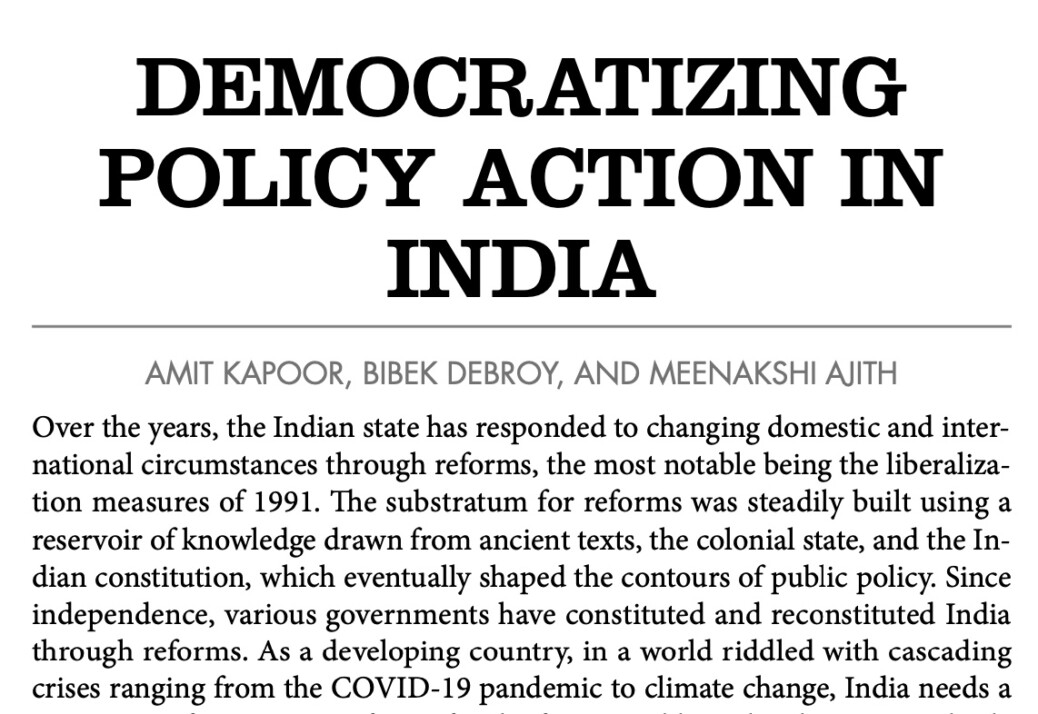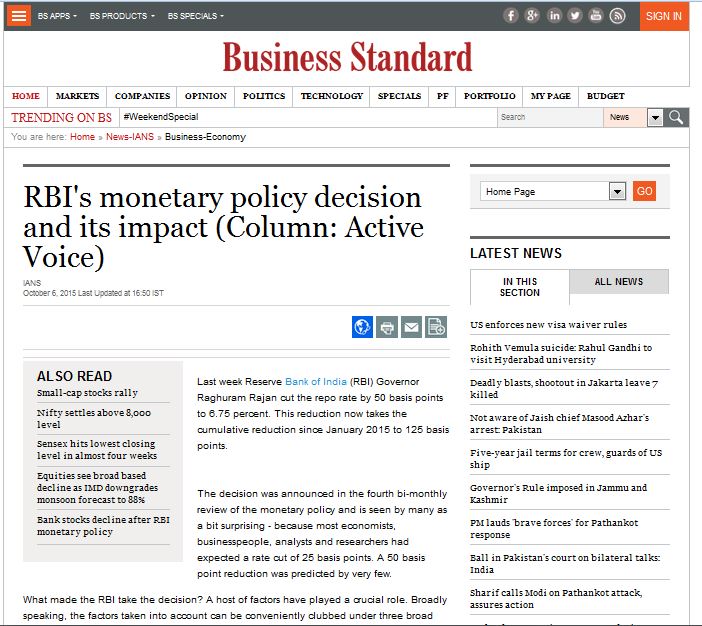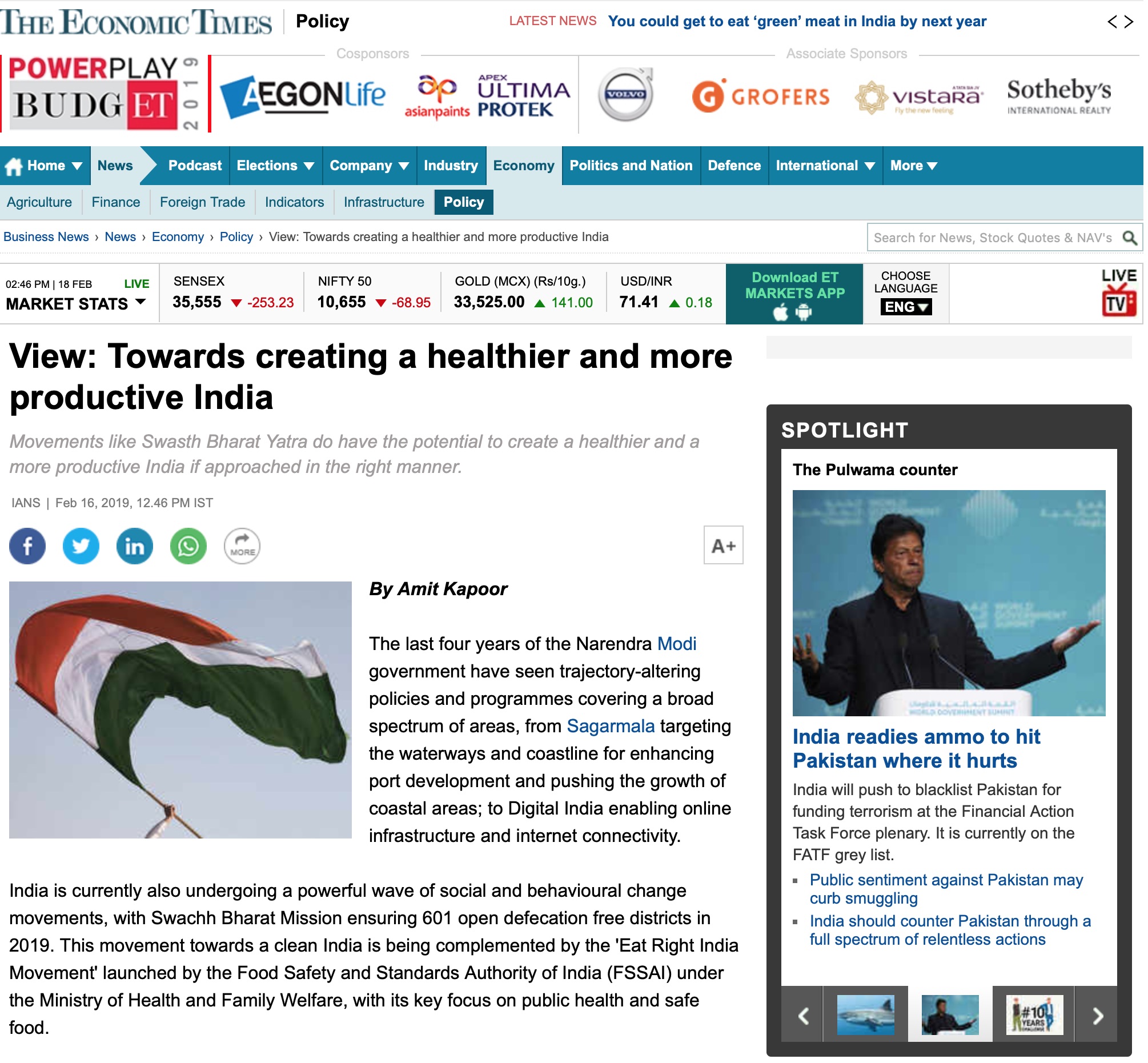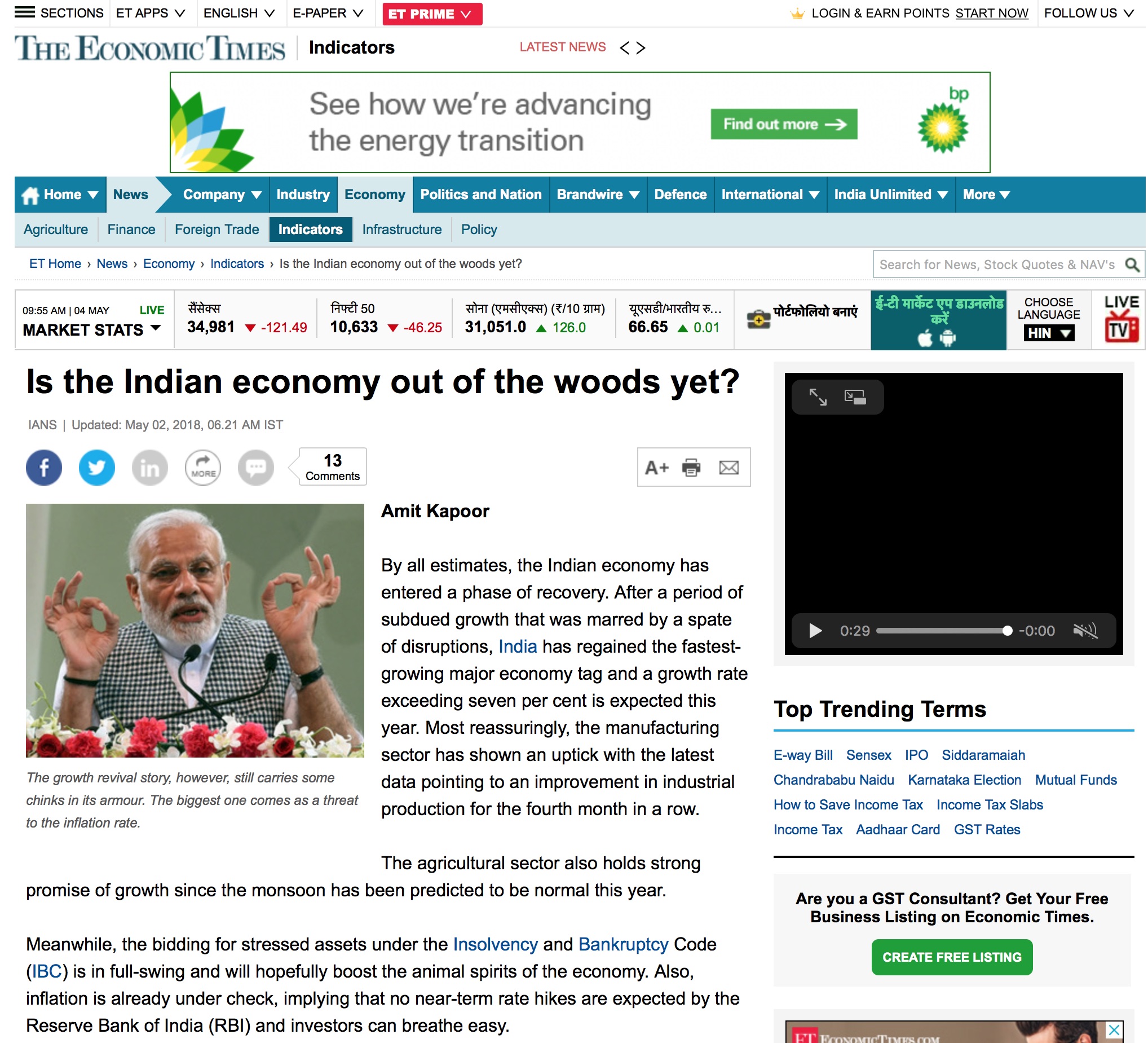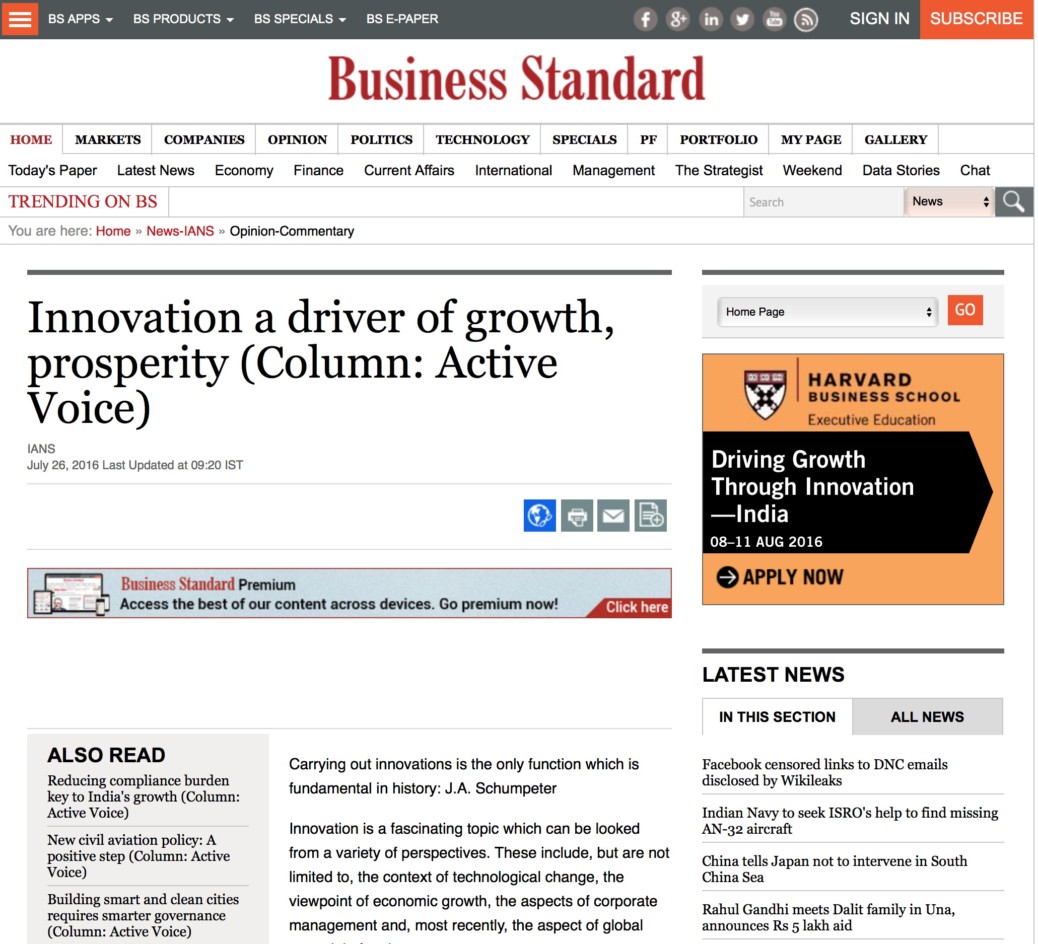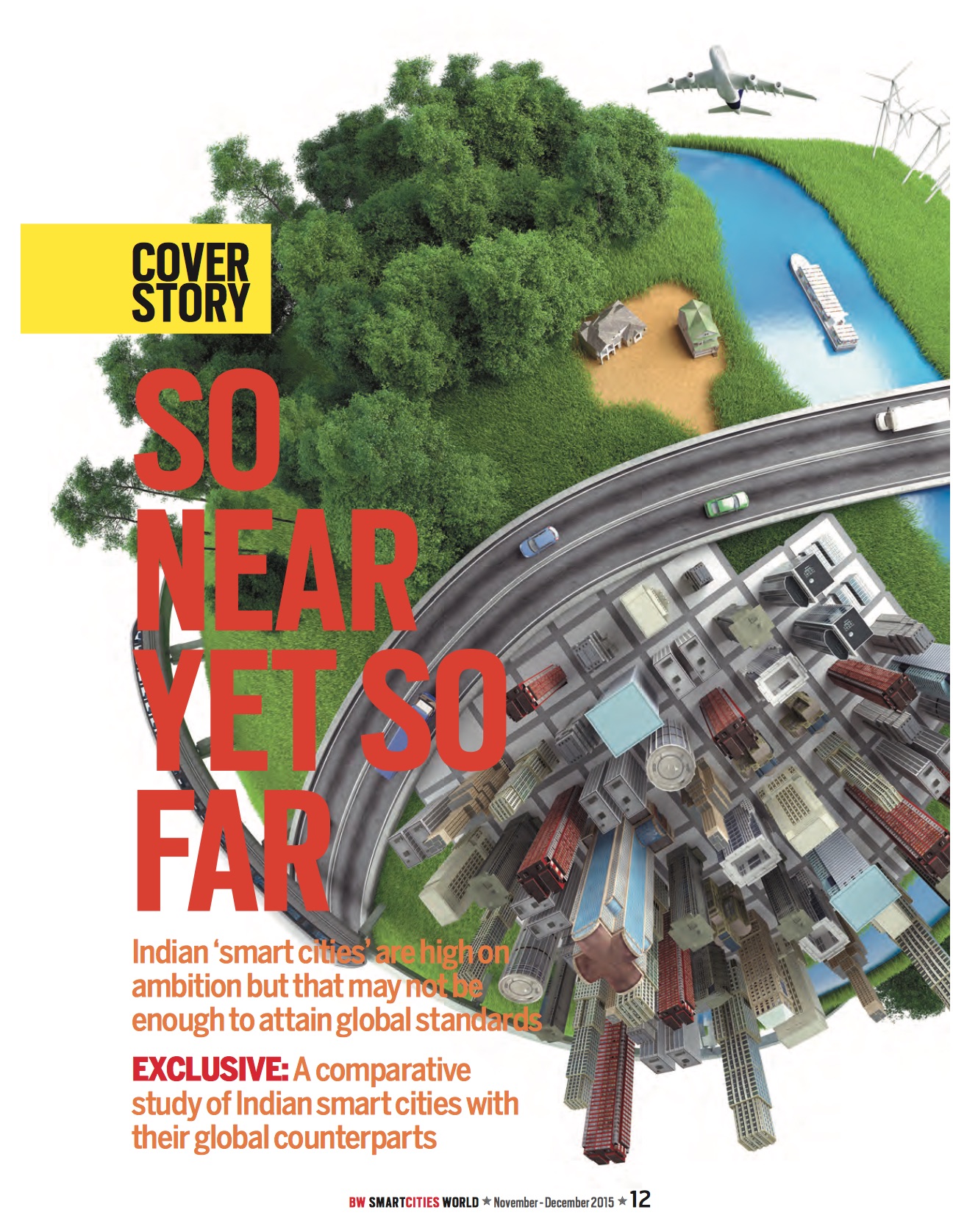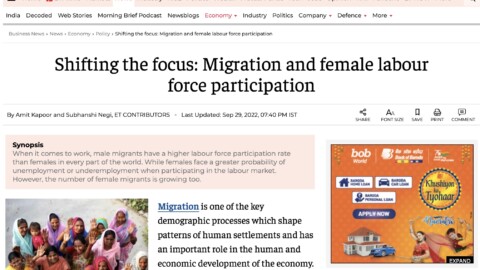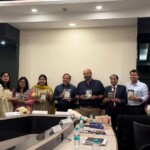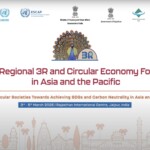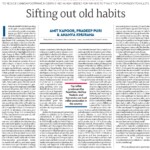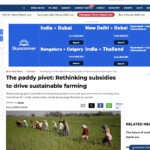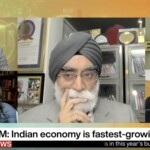Over the years, the Indian state has responded to changing domestic and inter- national circumstances through reforms, the most notable being the liberaliza- tion measures of 1991. The substratum for reforms was steadily built using a reservoir of knowledge drawn from ancient texts, the colonial state, and the In- dian constitution, which eventually shaped the contours of public policy. Since independence, various governments have constituted and reconstituted India through reforms. As a developing country, in a world riddled with cascading crises ranging from the COVID-19 pandemic to climate change, India needs a smart mix of innovative reforms for the future. Public policy has a critical role to play in shaping this new vision of a human economy—to bequest the “India way” of reforms for people and the planet. The idea of growth and development in India today is human-centric and it resonates with the global discourse on sustainable development and transitions for a resilient future.
The article was published with MIT Press Direct on May 31, 2023. The article has been co authored by Dr. Bibek Debroy, Chairman, EAC – PM and Meenkashi Ajith, Researcher, Institute for Competitiveness.
The complete article can be read at https://direct.mit.edu/itgg/article/13/3-4/70/116215/Democratizing-Policy-Action-in-India
